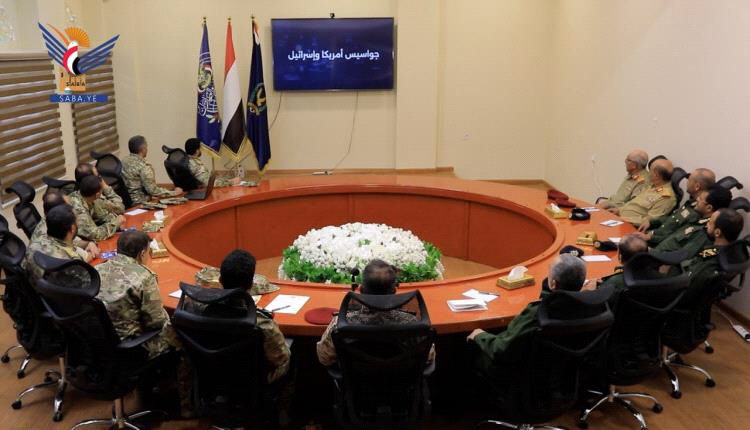

Abdulrasheed Al-Faqih
This Monday evening in Sana'a, the Houthi Security and Intelligence Service announced the discovery of an American-Israeli spy ring in an extensive statement. Following this, Al Masirah TV, the Houthi-affiliated channel, broadcasted a video featuring what were described as confessions from a group of detainees who were employees of the U.S. Embassy in Sana'a, which has been closed for nearly a decade.
Below are several initial procedural points I have noted regarding the content of the announcement and the broadcast:
• Espionage as a Grave Offense: Spying for any foreign nation is a "grave crime" that cannot be justified under any circumstances if proven with clear, unequivocal evidence through a transparent, fair, and non-politicized judicial process.
• Distinguishing Legitimate from Illegitimate Activities: It is essential to differentiate between lawful and unlawful activities performed by employees of diplomatic missions, international organizations, and local entities. Many such activities were conducted openly with the knowledge and participation of previous authorities. The legal principle holds that there is no crime without a legal statute and no punishment without a legal statute, prohibiting the imposition of retroactive penalties.
• Timing and Conditions of the Announcement: The announcement, made during an official judicial holiday, follows the prolonged detention of several U.S. Embassy employees, who were forcibly disappeared. During this period, they were denied access to lawyers, contact with their families, and their legal rights to defense and grievance.
• Responsibilities of Security Agencies: Security agencies are restricted to gathering evidence, arresting, and detaining individuals within the limits and durations precisely defined by national legislation. They are not authorized to raid homes and offices without adhering to legal procedures, exceed legal detention periods, practice enforced disappearance, or violate procedural justice requirements, regardless of the charges' nature or severity.
• Role of the Public Prosecution: Once the legally specified period for security agency action ends, the public prosecution assumes responsibility for completing investigations and formally charging individuals, ensuring their fundamental rights, such as legal representation and the right to defense and appeal.
"Regardless of the charges' nature or severity, it is unacceptable, under any circumstances, to combat crime with equally severe violations such as enforced disappearance, arbitrary detention, or torture."
• Judicial Authority: The public prosecution forwards individuals and their cases to the "natural justice," which exclusively holds the authority to acquit or convict based on a trial that adheres to fair trial principles and conditions.
• Violation of Presumption of Innocence: The public dissemination of gathered evidence and statements by security agencies through media outlets constitutes a severe breach of the fundamental legal and humanitarian principle that "every person is presumed innocent until proven guilty by a final judicial ruling reached after a fair trial." The negative impact of such broadcasts on justice as a process and value, and on individuals' legally protected rights, is immeasurable. The most severe impact is the prejudicial influence on judges' convictions, defense attorneys, and the accused and their families before a judicial verdict is rendered independently of the executive branch and its security agencies.
• Implications for Public Prosecution and Judiciary: What margin, if any, have security agencies and media left for the principle that "every person is presumed innocent until proven guilty by a final judicial ruling reached after a fair trial"? What, then, remains for the public prosecution and the judiciary at all levels?
• Adherence to Legal Procedures: Security agencies and law enforcement must adhere to legal procedures from the first moment of interaction with any citizen involved with the law, regardless of the case type. This adherence protects citizens from abuse and misuse of power during criminal proceedings and safeguards security institutions and their personnel from involvement in serious crimes warranting accountability and punishment. It also ensures the integrity, fairness, legitimacy, and legality of the actions taken by these agencies and their leaders, aimed at achieving just outcomes.
Regardless of the charges' nature or severity, it is unacceptable, under any circumstances, to combat crime with equally severe violations such as enforced disappearance, arbitrary detention, or torture, or any other forms of inhumane and degrading treatment. Legal guarantees, rules, and measures are designed specifically to protect citizens and law enforcement agencies and their leaders from committing these crimes, in both the worst and best circumstances.